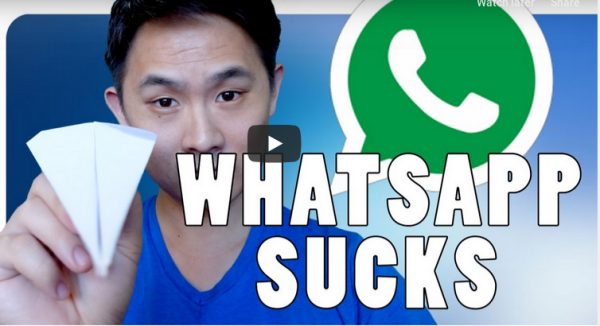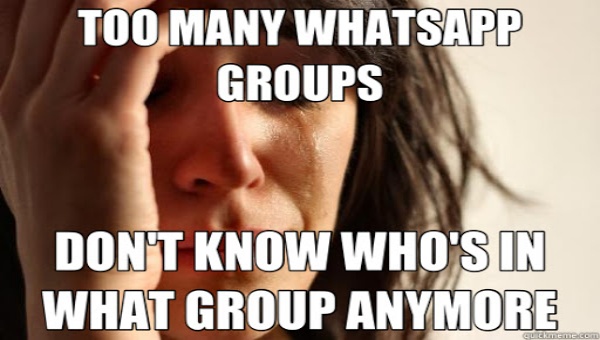The political threat of WhatsApp
As if WhatsApp wasn’t already bad enough…
You may have noticed that I do not exactly love WhatsApp. I don’t care that this year WhatsApp hit 2 billion users worldwide.

Because WhatsApp is terribly backward, and rude, and anxiogenic too.
Now (not that we really did not know, did we), thanks to this article it’s easier to see how, and why, WhatsApp really sucks in two more ways.
First, it’s terribly inefficient

- Anecdotal evidence from local political organisers and trade union reps suggests that, despite the initial efficiency of WhatsApp groups, their workload often increases because of the escalating number of sub-communities, each of which needs to be contacted separately.
- Schools desperately seek to get information out to parents, only to discover that unless it appears in precisely the right WhatsApp group, it doesn’t register.
Second, WhatsApp groups are a political problem
The political threat of WhatsApp is the flipside of its psychological appeal, that is the intimacy with those we care about and an ability to speak freely.
On the negative side, trust in what you can receive and say inside Facebook groups that are invisible from the ouside grows. But, in parallel, and for the same reasons, trust in public institutions and officials decreases.
The (political) question then becomes: how do public institutions and discussions retain legitimacy and trust once people are organised into closed and invisible communities?
The risk is that a vicious circle ensues… and our alienation from democracy escalates.
Conspiracies or not…
Something that connects up to 256 people, without any public visibility, wherever they are, seems made to order for facilitating genuinely conspiratorial behaviour.
Regardless of conspiracies, while WhatsApp may offer benefits in helping people feel close to others, its rapid ascendency is one further sign of how a common public world - based upon verified facts and recognised procedures - is disintegrating.
This cannot be good. Especially when added to the parallel tendency to abandon media, fragment, and regroup, potentially at every election.
Who writes this, why, and how to help
I am Marco Fioretti, tech writer and aspiring polymath doing human-digital research and popularization.
I do it because YOUR civil rights and the quality of YOUR life depend every year more on how software is used AROUND you.
To this end, I have already shared more than a million words on this blog, without any paywall or user tracking, and am sharing the next million through a newsletter, also without any paywall.
The more direct support I get, the more I can continue to inform for free parents, teachers, decision makers, and everybody else who should know more stuff like this. You can support me with paid subscriptions to my newsletter, donations via PayPal (mfioretti@nexaima.net) or LiberaPay, or in any of the other ways listed here.THANKS for your support!